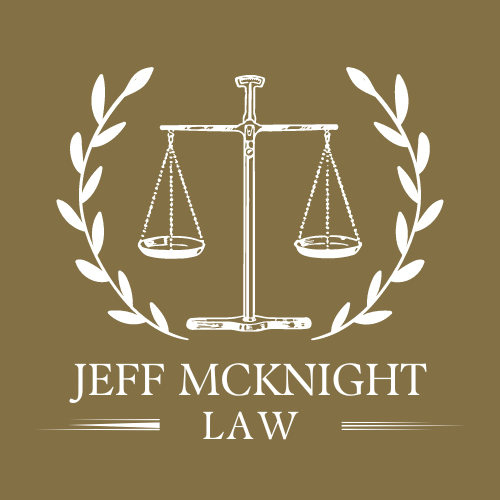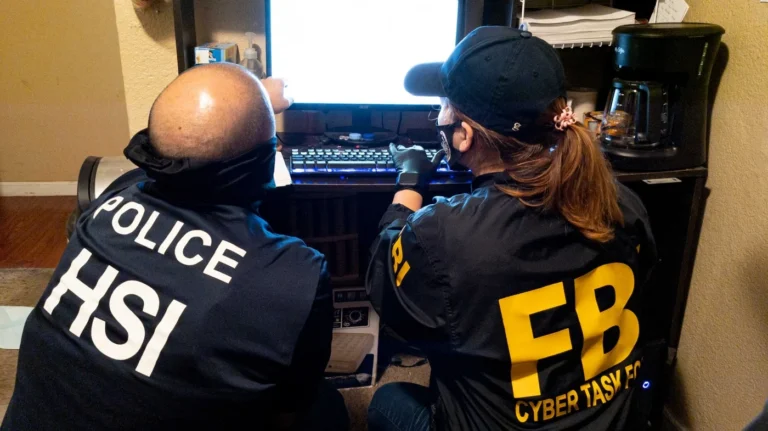
When we think about court cases, we often hear the term “beyond a reasonable doubt.” But what does it really mean? At JeffMcKnightLaw, we believe everyone should understand this key legal concept. In plain words, it’s about making sure there’s almost no chance the defendant isn’t guilty. Let us explain why this standard is so crucial in every divorce case we handle.
As indicated in legal dictionaries, “beyond a reasonable doubt
” means the jury or judge must be almost certain of the defendant’s guilt. It is the highest standard of proof in criminal cases. This ensures no reasonable person would question the defendant’s guilt.
What Is ‘Beyond a Reasonable Doubt’?
The phrase ‘Beyond a reasonable doubt’ represents the highest standard of proof in criminal law.
Predominantly the prosecution must prove the defendant is guilty to the point where the jurors have no reasonable doubts. This means the evidence must be so strong and convincing that any reasonable person would have no second thoughts about the defendant’s guilt. The prosecution doesn’t have to prove the defendant is guilty beyond all possible doubt, just beyond a reasonable doubt.
Typically this rule helps protect the rights of the accused, making sure no one is wrongly convicted. To meet this standard, the prosecution needs to present reliable and convincing evidence like witness testimony and physical proof. If the jurors have any doubts after seeing all the evidence, they must find the defendant not guilty. This beyond a reasonable doubt rule is important to prevent wrongful convictions and make sure justice is done.
Definition and Importance
Definition: It’s fascinating that a definition not only explains the meaning of a word or concept but also shapes our understanding and communication.
Come to think of it, defining something means clearly explaining what it is and what it isn’t, making it easy to understand.
Why It’s Important: Knowing exactly what a word or idea means helps people communicate better and avoid misunderstandings. If things aren’t clearly defined, it can cause confusion and slow down progress. Clear definitions make sure everyone has the same idea in mind when talking about a topic.
In essence, they are the starting point for building theories, doing research, and solving problems. In fields like science or academics, having precise definitions is key for deep analysis and building on existing knowledge. Definitions also help differentiate between various ideas or methods, showing what makes each one unique. They act as a guide for further study and discussion. In short, definitions help organize information, promote clear understanding, and allow us to advance knowledge in different areas.
Legal Standard in Criminal Cases
In criminal cases, the prosecution must prove guilt beyond a reasonable doubt, the highest standard of proof in the legal system.
At the simplest level, the evidence must be strong enough to convince the judge or jury that the defendant is guilty of the crime they are charged with. It’s the prosecution’s job to prove each part of the crime beyond a reasonable doubt.
This high legal standard protects the accused’s rights and ensures that innocent people are not wrongly convicted. The idea is that it’s better for a guilty person to go free than for an innocent person to be punished.
To meet this standard, the prosecution must provide trustworthy and relevant evidence. By definition, this can include testimonies from witnesses, physical proof, expert opinions, and other information that supports their case.
The defense also has a chance to show evidence and witnesses to challenge the prosecution and create doubts about the defendant’s guilt. The judge or jury must carefully consider all the evidence before making a decision.
If the prosecution cannot prove the case beyond a reasonable doubt, the defendant must be found not guilty. This protects people from being unfairly punished and supports justice and fairness in the legal system.
Examples in Courtroom
Courtroom examples often include landmark cases that have set significant legal precedents.
It seems that, in a trial, witnesses might talk about specific events or conversations to help the jury understand what happened. They can also show documents, photos, or videos to highlight important details.
Expert witnesses, like forensic psychologists or financial experts, might share examples from their work to explain complicated ideas to the jury. For instance, a forensic psychologist might describe certain behaviors to show that a defendant has a mental disorder, while a financial expert might point to specific transactions to show evidence of fraud.
To cut a long story short, lawyers use examples in their opening and closing statements to convince the jury of their side of the story. They might compare the current case to previous ones to support their argument. Judges also use examples to help the jury understand legal rules or how much proof is needed.
In short, examples are very important in court because they help make complex ideas clearer and more convincing for the jury.
Misconceptions Explained
Misconceptions arise when beliefs persist despite clear evidence disproving them.
At its simplest, these misunderstandings can happen because of a lack of information, misunderstandings, or cultural influences. It’s important to fix wrong beliefs to help everyone understand things correctly.
One common wrong belief is that vaccines cause autism. Many scientific studies show that there is no link between vaccines and autism. Another wrong belief is that people only use 10% of their brains. In truth, brain scans show that all parts of the brain are active and needed for different functions.
You know, another wrong belief is that mental illness is because of personal weakness or character flaws. In reality, mental illnesses are complex and can be caused by a mix of biological, psychological, and environmental factors. It’s important to learn about mental health to support those who are struggling.

The Final Thoughts
In the legal system, “beyond a reasonable doubt” is the standard of proof required for a defendant to be convicted of a crime.
What JeffMcKnightLaw is advocating for is, this means that the evidence presented must be so convincing that any reasonable person would have no hesitation in believing the defendant’s guilt. It is the highest standard of proof in a criminal trial and is essential for ensuring justice is served.






